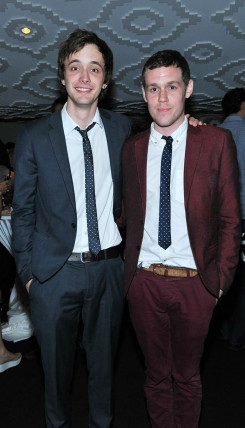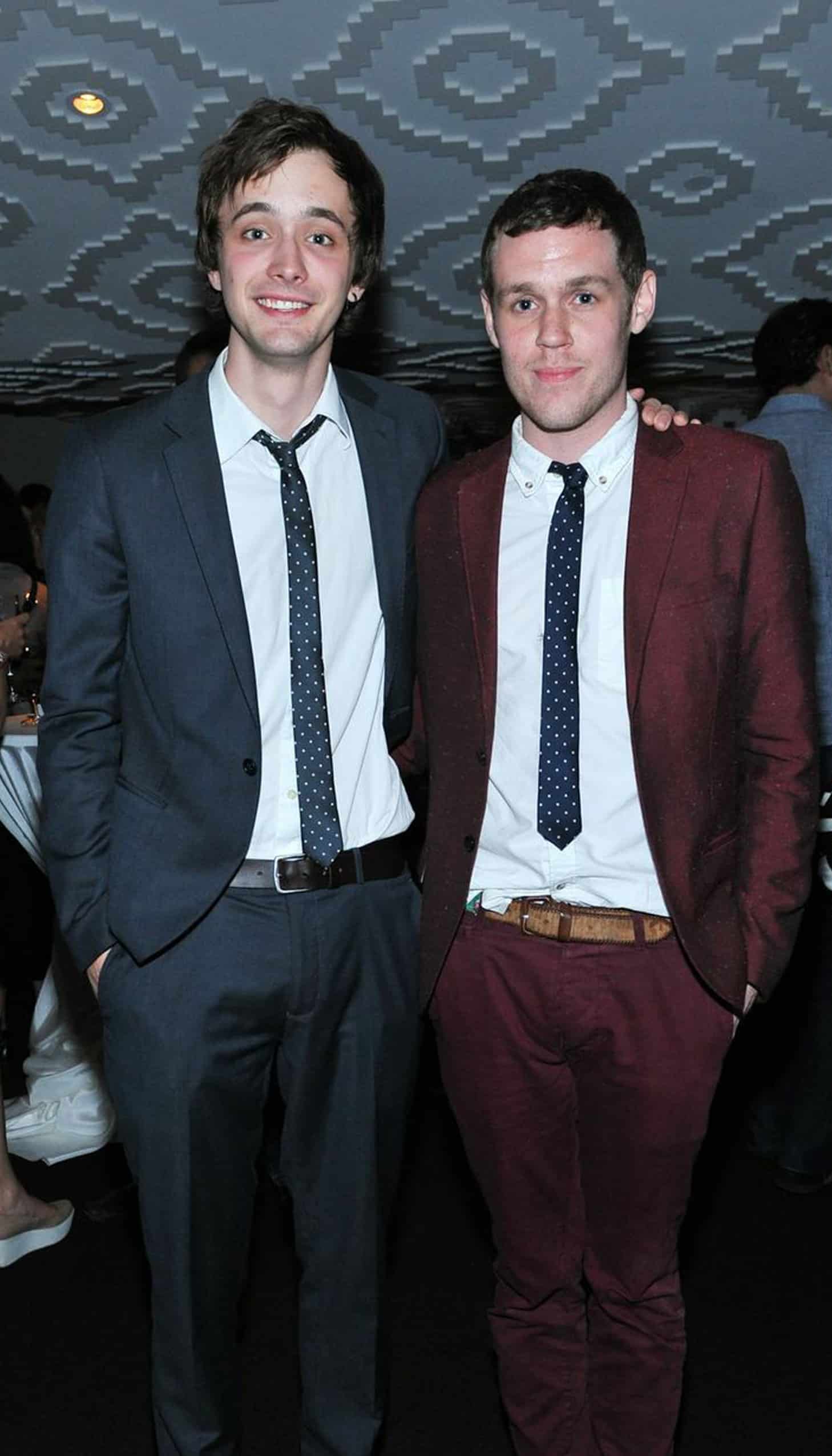Noah, one of the short films that gained popularity after TIFF, is a bit of an eye-opening experience. Created by two former Ryerson University film students, Walter Woodman and Patrick Cederberg, the film is about a teenager named Noah who ultimately goes through a break-up with his girlfriend and tries to get over it on the Internet.

Filmmakers, Patrick Cederberg and Walter Woodman. PHOTO COURTESY WALTER WOODMAN
The wonderful thing about the film is that it’s shot completely on webcam. The camera fades back and forth between Facebook chats, Skype calls, websites, iPhone texts, and Chatroulette talks — showing the range of emotions that Noah experiences as he goes from suspecting that his girlfriend is cheating on him to trying to figure out how to get over her.
On one level, Noah is a portrait of modern day communication, but it also raises questions about whether the way we communicate is entirely viable. Originally screened at TIFF, Noah gained over a million views after it was uploaded onto YouTube in September, and has put Cederberg and Woodman get on the international radar.
The Varsity sat down with Patrick Cederberg to talk about Facebook, shooting films entirely on webcam, and what’s next for the two filmmakers.
The Varsity: So what has the audience reaction been like for your current film, Noah?
Patrick Cederberg: There’s been a good, consistent response to it — a lot of people have said: “this was me a couple of years ago,” but ultimately, a lot of them have also been stoked about this new, entirely different way of shooting films.
TV: How long did it take to create the film, in terms of creating the online identities and then just shooting everything?
PC: Well, it took about four to five months to create the online identities (for Amy and Noah), and what we had to do for that was repurpose our own Facebook accounts into the accounts of Amy and Noah. We kept on posting things on each other’s walls in order to create this authentic online world. In terms of footage, we shot the Chatroulette and Skype scenes first, before moving to the screen-capture shots. The screen-capture was just the two of us in a room with a bunch of computers and phones, coordinating everything.
TV: I remember reading that Noah was originally a film about Chatroulette — how did it go from that to a film on online communication?
PC: Well, Walter got obsessed with Chatroulette for a while, and he ended up roping me in. I remember this one time when we talked with a girl from New Jersey from 11 pm to 4 pm, and it was like this cool, honest connection because it was so anonymous. The conversation would end, and we would never see her again. So from there, Walter had an idea for a film about a guy who meets a girl from Chatroulette and then ends up actually meeting her in real life. But it sort of felt flat once the script went from the computer screen to real life, so I suggested we just move to the computer screen completely and it evolved from there.
There is also this big misconception in the media that Noah is an “anti-Facebook” film, but really what we were trying to do was paint a picture of how we communicate. I mean, Facebook can be bad because it allows for shallow people to cultivate these false personalities for themselves, but there is more to it than that.
TV: I feel like Noah also shows this hierarchy of communication between all these different methods of communicating: texting, Skyping, Facebook chatting, or calling someone?
PC: Yeah, it’s definitely weird. A tweet is not as personal as a Facebook message, which is not as personal as a chat, which is not as personal as a phone call, which is definitely not as personal as a letter — which is a gold mine and it’s totally amazing when you receive one. It’s weird how that applies now, but I think that it also depends on the people who are communicating as well. It’s both a good and bad thing.
TV: What were some previous films that you made with Walter? Is there anything coming up?
PC: This is the first full film that me and Walter have made together. Six months ago, we also started recording for our band, Shy Kids, and our heads have been in the band mentality for a while. But tiff has definitely been really helpful, and now we’re flying down to la for potential projects, like to do commercials and music videos. We also have some passion projects in the backburner — there is another film about how the computer sort of shapes us as people, but nothing quite so related to Noah.
TV: Do you have any advice for upcoming filmmakers?
PC: There is this feeling that one needs the best equipment, the best set, the best cameras in order to make a movie, and that can be a sacrifice to creativity, and the actual story. But honestly, if a movie is clever, and there is enough heart in it and it’s authentic, it’s gold. Also, I think the new way of communicating, such as YouTube, is a great medium for artists — our movie blew up completely because of it.
This interview has been edited for clarity and consistency.


